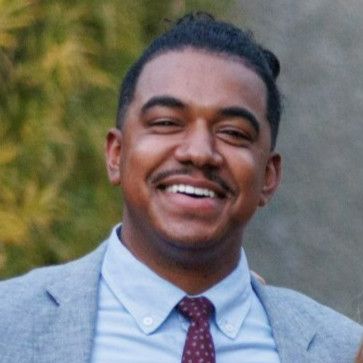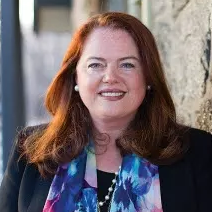The Loneliness Epidemic in America and Other Updates From the Surgeon General’s Office
Not a member and interested in attending? Contact Us!
Join Rafael Campos, Deputy Director of Public Engagement in the Office of the Surgeon General, to discuss how loneliness can affect physical, mental and societal health, and what employers can do to support their employees suffering from loneliness and isolation.
Featured Speaker

Rafael Campos
Rafael Campos is the Deputy Director of Public Engagement in the Office of the Surgeon General, where he works with public and private partners to advance the Surgeon General’s priorities. Having served in the Office of the Surgeon General for the last three presidential administrations, his work has focused on mental health, social isolation and loneliness, suicide prevention, and the COVID-19 pandemic response. Previously, he worked for the President’s Council on Fitness, Sports & Nutrition, where he supported First Lady Michelle Obama’s Let’s Move! Campaign. He earned his master’s degree from Georgetown University, his bachelor’s degree from Rutgers University, and is currently pursuing his MBA and MPP on a part-time basis at the University of Maryland. He lives in Washington, DC with his wife, one-year-old daughter, and pitbull.
With

Kim Thiboldeaux - CEO
Kim Thiboldeaux is a seasoned, passionate health care leader with experience in both the private and non-profit sectors, spanning multiple disease areas and health care topics including HIV and AIDS, organ transplant, oncology, caregiving, patient navigation, and health equity.
Kim served as CEO of the Cancer Support Community (CSC) for 20 years, from 2000-2020, leading a global nonprofit network that operates at 175 locations, including CSC and Gilda’s Club centers, and in multiple hospitals and cancer clinics. Combined with a toll-free Helpline, a Research Institute, and a DC-based Policy Institute, Kim grew this network of professionally-led services five-fold during her tenure. In her last year as CEO, the organization provided more than $50 million in free support and navigation services to patients and families.
Kim’s service includes appointments to the nation’s premier health care panels and boards. In 2019, Dr. Francis S. Collins, Director of the National Institutes of Health, appointed Kim to the Novel and Exceptional Technology and Research Advisory Committee. This panel is focused on providing advice and serving as a transparent forum for discussion of the scientific, safety, and ethical issues associated with emerging biotechnologies. In 2017, Kim was appointed to serve on the Biden Cancer Initiative’s Board of Directors.
In serving as a patient advocate on these high-profile boards and panels, Kim has brought attention to inequities in our health care system. In 2019, she joined Navajo Nation President Jonathan Nez, Dr. Jill Biden, and leaders of the Tuba City Regional Health Care Corporation in Arizona to mark the opening of the first-ever full-time cancer and support center on an American Indian Reservation. Kim helped convene key Navajo Nation leaders, private sector supporters, and other officials to establish this culturally-adapted program located in an area larger than the state of West Virginia. That work led to the opportunity to develop a full-length, feature documentary, Navajo Nation USA, about the cancer center and the triumphs and challenges of the Navajo people. Kim is Executive Producer and Writer on the film (www.NavajoNationUSA.com).
In 2020, Stand Up To Cancer appointed Kim to its Equity Breakthrough Research Review Team, focusing on cancers affecting underrepresented populations. In 2019, the International Psychosocial Oncology Society presented Kim with the President’s Community Award for Distinguished Contributions at its Global Congress in Canada.
Kim has led numerous other initiatives to help patients and families in need. Most notably, she launched an emergency fund in the wake of the COVID-19 pandemic that provided financial relief grants to thousands of patients affected by the economic downturn and expanded the organization’s professionally-staffed Helpline as the call volume nearly doubled. In addition, as part of a two-year collaboration she led with Airbnb, more than 3,000 patients in need were provided free housing while traveling for treatment.
